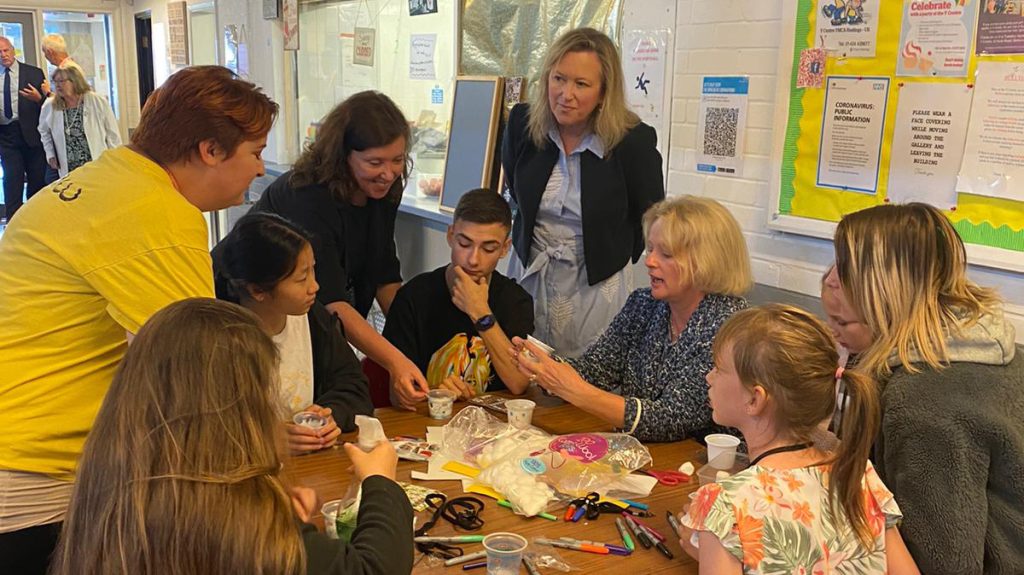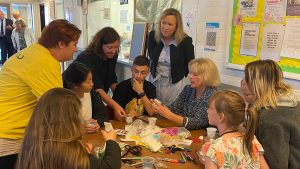
Two words that I hear a lot, when I talk to people about my work promoting and protecting for the interests of children, and of course, most importantly, children themselves, are ‘family’ and ‘community’. Instinctively, we all know what these words mean, how they are related, and why they’re so important to children’s wellbeing. But I think most of us would struggle to really define them. They are big concepts and they’re very personal – they mean different things to each of us.
Their uniqueness is, of course, what makes families and communities so special to us. And they are special to children, as they told me in The Big Ask, the largest-ever survey of children, that I conducted last year. Children wrote about what was important to them for the future:
“A happy family and a good […] friend. To have a good job. To live in a [peaceful] street with a lovely nature. To give charity money. To help poor people and please give money.” – Boy, aged 8.
“…What is important in life […] is the love and respect from our family, friends and wider community” – Girl, aged 13.
Children were also able to empathize with others who might not have a supportive family situation:
“…I love my bed, but children may [not] have a bed to sleep in. Having a family, some people don’t have a family” – Boy, aged 9.
“Not having a nice family and not having very much money and not having a nice community to live in” – Boy, aged 10.
Others spoke of their own challenging family situations:
“…My parents are a bit [too] overprotective even though they broke up. I am still not coping with it but I have to get past that stuff. Me and my dad used to argue a lot but at the end [of] the day it [does] not change how much you love your family the same. Thank you” – Boy, aged 10.
The massive variety of family situations makes it a challenge to build services and systems that understand families’ needs and make them stronger, which is why I am so pleased to have been asked by the Government to lead the country’s first ever independent Family Review. This is a chance to really understand all aspects of modern family life and what family means for the whole nation. With a particular focus on children’s perspectives, I will look at how public services can do more to support families as a unit, rather than a collection of individuals. By doing this we can do more to create an environment to help all families and communities thrive.
As part of the Review, my office has also been looking at how families interact with their wider community. Throughout our focus groups, I have been hearing about the importance of community organisations in supporting families. Volunteer-run activities and support groups allow families to build strong relationships with those around them, as I also heard in The Big Ask:
“…It could even be mental barriers convincing people that they aren’t good enough or aren’t smart enough or are too old too young, so more community support could help people strive for what they want” – Girl, aged 15.
“A lack of youth clubs or mental health support, there aren’t many people to go to and reach out for help when you can’t talk to your family or friends” – Child, aged 13.
I look forward to sharing more findings from the Family Review. Until then, it’s a priority to find ways to connect children to their local community, and to build stronger communities, because children clearly see their communities as having a large impact on whether they’ll achieve what they want to in life.
“What stops young people from achieving their dreams is no family because you need them in your life. Also if you have a bad community around you because they could put you down just as you were about to touch the stars” – Boy, aged 13.
“I have a disability – Down’s syndrome. I am afraid I am not going to be treated fairly – whether this means getting a good job, being able to stay on my own, or being part of the community. If the community and the wider world aren’t aware of my disabilities, and what I can achieve, I won’t even be given a chance to prove what I can achieve” – Girl, aged 17.
“Lack of role models in their local community achieving great things” – Girl, aged 16.






